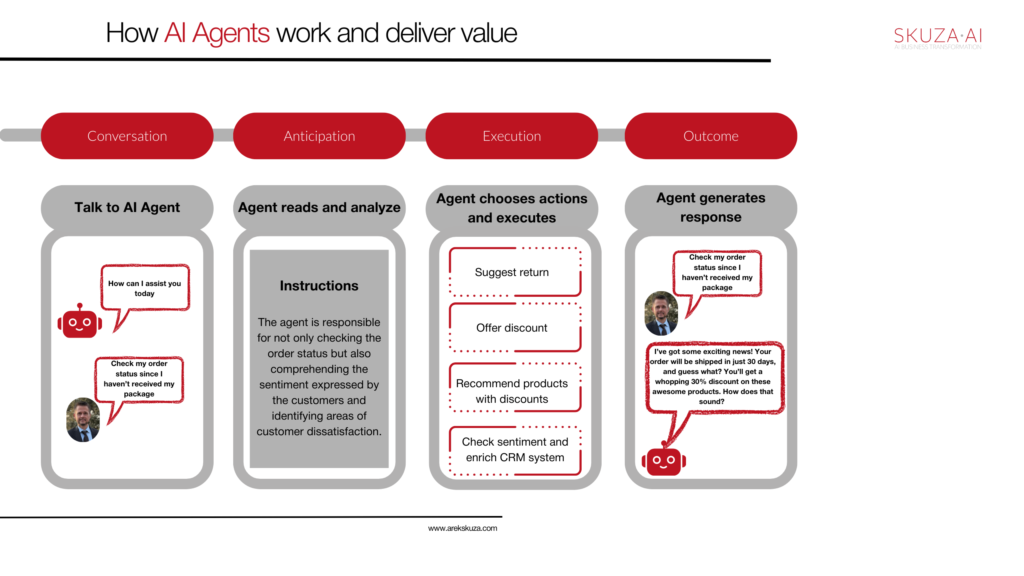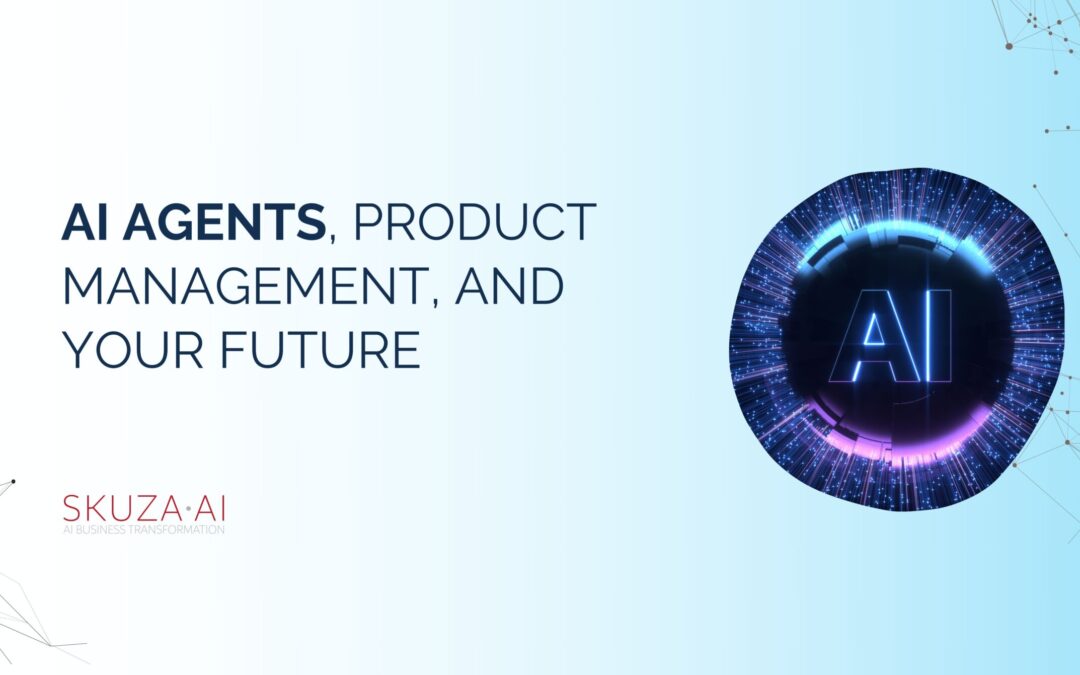Is your B2B business poised to ride the wave of AI innovation or risk being left behind?
The world of AI is no longer a futuristic fantasy; it’s rapidly reshaping how B2B companies operate. We’re seeing a massive shift, moving beyond simple rule-based automation to sophisticated AI agents capable of independent problem-solving. This isn’t just about incremental improvements; it’s a fundamental restructuring of customer operations, sales processes, and, ultimately, how you achieve growth.
The Limitations of Rules-Based Systems: For years, businesses have relied on rigidly programmed workflows. While these systems offer consistency, they lack the adaptability and intelligence to navigate complex, nuanced situations. The biggest limitation comes from the fact that every step is pre-defined.
AI Agents: The Difference Between a Barista and a Coffee Maker
As we move forward the limitations of pre-defined tasks are becoming apparent. Your old automation is not an AI agent anymore than a coffee maker is a barista. It’s merely following instructions. In contrast, an AI agent can adapt, learn, and autonomously chart its own path. This critical difference is where real transformation lies for B2B companies and how they achieve results.
- Efficiency Amplified: Imagine cutting research time by 90%. What used to take your team three hours, an AI agent can accomplish in mere minutes. This translates directly into faster turnaround times, reduced operational costs, and increased responsiveness. A recent study I have conducted, confirmed this speed increase, and this has made 54% of customers open to interacting with agents.
- Unprecedented Scale: AI agents don’t just work faster; they work broader. They can scan hundreds, even thousands of websites in the time it takes a human to research just a handful. This capability opens up huge opportunities for better market analysis, customer insights, and competitive intelligence. For example one agent was able to analyze 79 websites, with some tasks involving over 300.

Figure 1: How AI Agents work and deliver value, source: SkuzaAI Trainings Materials
Accuracy and Trust in the AI Age
The power of AI means nothing without the reliability of its outputs. Early adopters of AI often struggled with trust issues, but as they mature this has been improved with higher accuracy.
Verifiable Results: Modern AI agents provide citations and source their conclusions, allowing you to verify their claims and build confidence. This has had a dramatic impact on customer trust, with 39% of consumers being comfortable with AI agents scheduling appointments on their behalf. This is not the future; it is the present. AI agents aren’t just a technological marvel; they are a game-changer for your bottom line. They are ready to move beyond simple tasks to complex decision-making processes. For example, 75% of Customer Experience leaders are exploring new vendors for their tools, showing a clear trend of AI agents integration into the business operations.The rise of generative AI and AI-based tools is not only changing how tasks are performed but also how we manage product development. Product managers (PMs) are now tasked with defining AI-driven solutions, meaning what is possible to build has shifted dramatically, requiring a shift in product management practices. The traditional way of working needs to be re-evaluated, there is now a need for PM’s to learn the new best practices.
In order to get started quickly you must start with a concrete idea. Instead of vague specifications, PMs should focus on detailed, tangible use cases. For instance, instead of asking for “a chatbot for banking inquiries,” provide between 10 and 50 concrete examples of conversations you expect the bot to manage.
- Data is Your PRD: Just like machine learning algorithms need training data, your AI product team needs concrete examples of what you want an AI system to do. Data becomes the foundation for your product requirements document (PRD).
- Defining Boundary Conditions: When specifying AI products, clarity is paramount. Don’t just ask for a “vision system to detect pedestrians” – provide a set of pictures with annotations, illustrating the desired outputs. This makes the engineering team clear on the requirements and can assess the feasibility quickly.
PMs can leverage the power of Large Language Models (LLMs). PMs don’t need to be software engineers to get an understanding of a projects technical feasibility, by using prompts.
- Example: A PM can prompt an LLM to classify customer emails for routing to the correct department. If the LLM achieves high accuracy, engineering has a strong starting point. If not, the PM can quickly refine the product idea.
- AI as a Coding Companion: AI tools are making coding accessible for PMs. Basic coding allows PM’s to carry out the initial feasibility testing.
The best way to fine tune your product is to get user feedback. Using available tools, PM’s can create working prototypes without always relying on software developers. Accessible Tools: Tools like Replit, Vercel’s V0, Bolt, and Anthropic’s Artifacts empower non-coders to build and experiment with simple prototypes quickly. Faster Feedback Loops: By utilizing these tools and getting rapid user feedback PM’s can iterate and improve products faster.
The Economic Revolution and Trust
The economic impact of AI agents is staggering, with the global market projected to grow at a CAGR of approximately 45%, from $5.5 billion in 2024 to $156.1 billion by 2033. This shows a clear understanding of their business impact, which extends to industry transformation. AI agents are reshaping industries from manufacturing to healthcare, not just B2B. They are already having a profound impact and creating huge opportunities.
Despite the excitement, challenges remain.
- Trust Gap: Only 24% of consumers are comfortable with AI agents making purchases for them, which shows a clear gap in trust. PM’s and business owners must understand these challenges and address them.
- User Experience: AI agents can be seen as too simplistic or repetitive, with some users blocking them. Therefore, it is important to build agents that are both effective and engaging.
The AI landscape is dynamic. Within the next five years AI agents may take over more online interactions than humans for certain tasks. They are already reaching high levels of sophistication, and they will continue to become more powerful.
- A Shift in Perspective: It’s time to re-evaluate how your business uses AI, embracing the new capabilities and opportunities.
- The Rise of the AI PM: The market is demanding skilled AI product managers who understand these new practices.

Figure 2: Why are AI Agents the next frontier, Source: McKinsey
Conclusion
The AI revolution is no longer on the horizon; it’s here. For B2B companies aiming for long-term growth, value, and profit, embracing AI agents and adapting product management practices is essential. The time to act is now.

